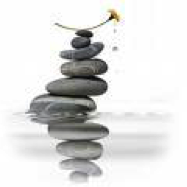When you are a teenager you look forward to your young adult life, your freedom and so on,
When you turn 20 you just seem to enjoy life,
When you turn 30 you feel you are at the peak of your life, studies seem far away you have already proved or started to prove your skills at work, you feel young, healthy, mature,
When you turn 40 from what I heard 🙂 it feels like you have already achieved a lot, lived a lot, you still feel young at heart but you begin to start feeling you are no longer a young person,
Then when you turn 50, your children are there to remind you, you are getting older, however you feel about it
When you pass 60 it seems that that feeling is reinforced with each passing year…..
However, a recent study, which results were published on line earlier this month, in the Proceedings of the National Academy of Sciences, brought good news for old people, and for those who are getting older.
Hence my question of whether getting old is such a bad thing,  since according to this study, on a global measure, people start out at age 18 feeling pretty good about themselves, and then, life begins to throw difficulties at them making them feel worse and worse until they reach 50. Point, at which, there is a sharp reversal, and people start getting happier and happier as they age. To the point that by the time they are 85, they are even more satisfied with themselves than they were at 18.
since according to this study, on a global measure, people start out at age 18 feeling pretty good about themselves, and then, life begins to throw difficulties at them making them feel worse and worse until they reach 50. Point, at which, there is a sharp reversal, and people start getting happier and happier as they age. To the point that by the time they are 85, they are even more satisfied with themselves than they were at 18.
Seems too good to be true for all those over 50 right?
And yet these are the results of a 2008 telephone survey of over 340,000 people in the USA. These persons with ages from 18 to 85, were asked various questions about age and sex, current events, personal finances, health and other matters and some specific questions to help identify their psychological wellbeing.
More specifically they were asked to rank their overall life satisfaction, also called « global wellbeing » on a 10-point scale and questioned around the type of feelings they had experienced the previous day among enjoyment, happiness, stress, worry, anger, and sadness. Apparently the latter reveal the « hedonic wellbeing », a person’s immediate experience of those psychological states, unencumbered by revised memories or subjective judgments that the query about general life satisfaction might have evoked.
The psychological wellbeing, which is considered a key aspect of the health of individuals and groups, includes a person’s overall appraisal of his or her life (their global wellbeing) and their mood and feelings (their hedonic wellbeing).
Prior to this study, several cross-sectional studies had documented a relation between global wellbeing and age. However, little was known about the age distribution of hedonic wellbeing.
Consistent with prior studies, this survey confirmed global wellbeing and and positive hedonic wellbeing, i.e. enjoyment and happiness generally had U-shaped age profiles showing increased wellbeing after the age of 50 years. However, negative hedonic wellbeing variables showed distinctly different and stronger patterns:
- stress and anger steeply declined from the early 20s,
- worry was elevated through middle age and then declined,
- and sadness was essentially flat.
Which means that once people turn 50 they feel happier, are less stressed, worried less, and feel overall much better about themselves.
Just another reason for us youngsters to look forward to aging instead of denying or ignoring it, and for the over 50 just another reason to feel better about themselves.
Reference:
« A snapshot of the age distribution of psychological well-being in the United States » by Arthur A. Stonea, Joseph E. Schwartz, Joan E. Broderick, and Angus Deaton.
N.B. Stay tune as apparently studies might now focus more on exploring this postmidlife increase in wellbeing
